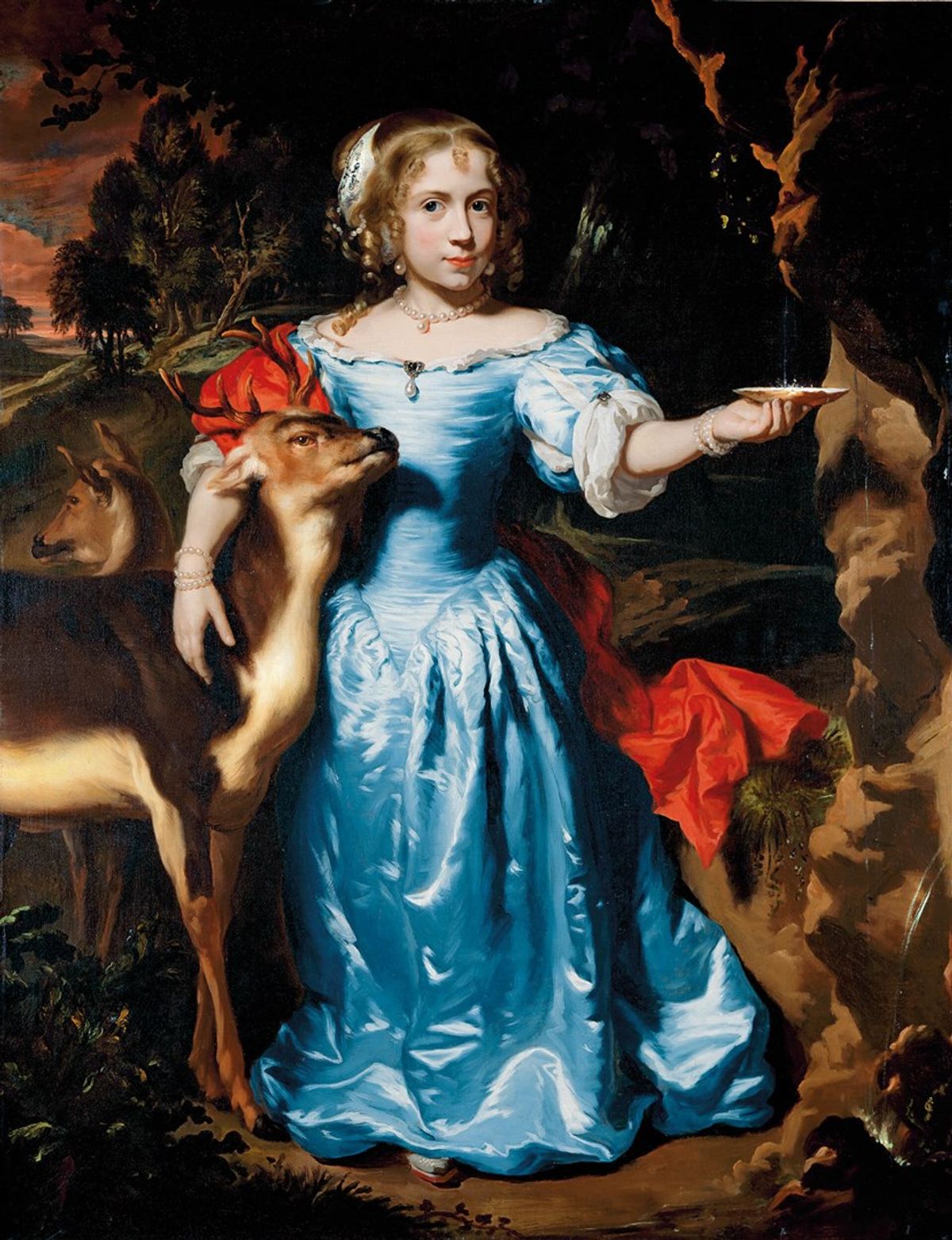The first UK solo exhibition of Nicolaes Maes at London’s National Gallery (until 20 September) provides a tight survey of the Dutch Golden Age painter, from his early days as Rembrandt’s pupil to his later years as a genre painter and portraitist for high society. While Maes’s work never quite leaves Rembrandt’s shadow, the show carves out a space for the lesser-known artist through a collection of his idiosyncratic mid-career paintings that depict eavesdroppers in domestic settings. Framed by pulled-back curtains, these interior scenes show scullery maids grinning conspiratorially to the viewer, inviting us to spy on pairs of lovers. Maes’s masterful and dramatic use of light—one of Rembrandt’s many gifts—further emphases the theatrical nature with which he rendered scenes of everyday life.
If sun and surf is on your agenda this weekend, head to New York's Rockaway Beach where the monumental sculpture Mother Earth (2020) by the New York-based artist Kris Perry was unveiled this week at the beach’s 98th Street entrance. The colossal 35 ft-tall steel sculpture, which will be on view until next summer and evolve with the seasons, aims to encourage visitors to have a much-needed moment of pause and introspection. The work “serves as a gathering place for viewers to closely examine their personal connection to the planet”, says the artist, who produces large-scale kinetic sculptures. “Rockaway Beach is a place where people come to escape their modern lives, [and] looking toward the horizon one often ponders their role and purpose in this world might be,” he says. The project was commissioned by Art in the Parks, a city-funded initiative gaining renewed steam in the era of social distancing.
The exhibition By Proxy on the website of the Arlington Art Centre is a group show featuring digital works by artists including Maps Glover and Gal Cohen that reflects on our online existence. This Saturday Jeremy Hutchison’s Dear Mr. Zuckerberg (2020)—a music video in collaboration with the artist and film-maker Oisin Byrne, in which Hutchison’s one-sided correspondence with Facebook founder Mark Zuckerberg is animated and sountracked to a Kraftwerk-inspired synthpop song—will debut. Humorous as this bizarre project is, beneath its levity lies the chilling reality of our ever-increasing dependence on big tech. As Hutchison points out, his correspondence, as well a large portion of the exhibition’s online events, only serves to provide Mr Zuckerberg and his Silicon Valley peers with more data, power and influence. Here, Hutchison asks us to question the unintended side-effects of a life lived digitally.


